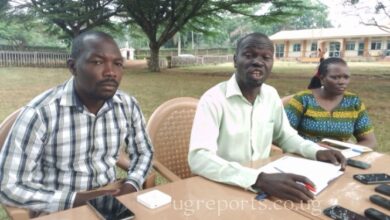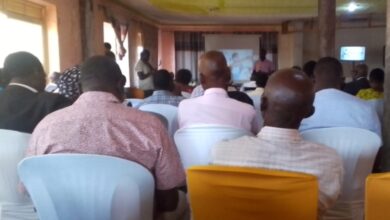More farmers to benefit from micro-scale irrigation program in Masindi
At least 25 farmers from Masindi district are going to benefit from the micro-scale irrigation program this financial year.

Masindi: Masindi district is taking a proactive approach to address the challenges posed by climate change through a micro-irrigation project.
Under this initiative, eligible farmers will have the opportunity to establish micro-irrigation systems on their land, focusing on a two-acre area.
The project is spearheaded by the District Agricultural Office and supported by the government.
At least 25 farmers from Masindi district are going to benefit from the micro-scale irrigation program this financial year.
During the engagement meeting with beneficiaries held at Masindi district headquarters gardens on Tuesday, May 21, 2024, Edina Kamuregeya, the focal point person for the micro-scale irrigation program in Masindi district, said that eligible farmers should have land close to unseasonal water sources, and those renting land must have a lease of at least 5 years since the equipment is not temporary.
Kamuregeya noted that eligible farmers should also be able to co-fund 25% of the total cost of the equipment since the government provides 75% of the necessary funds.
‘’We are starting to install equipment for 25 farmers this week before the financial year closes. Convenient access to water sources will promote sustainable farming practices. By utilizing existing water resources, the project addresses water scarcity in farming.’’
Kamuregeya said that micro-irrigation helps mitigate the impact of climate change on agriculture, and water-efficient techniques allow farmers to overcome erratic rainfall patterns and extended dry seasons.
Emmy Ngabirano, the Masindi resident district commissioner, encourages farmers to maximize the program’s benefits.
Despite food being imported from other districts, the irrigation program aims to improve the local food basket by enabling year-round cultivation.
Job Byaruhanga, the Masindi district agriculture officer, emphasizes that this initiative will enhance food security in the district by allowing crops to be grown throughout the year.
Charles Asiimwe and Aida Mbabazi, the beneficiaries, commended the government for the initiative and said it would improve their productivity and household income since they would be able to cultivate in and out of the season.
.The program supported by the World Bank is part of Uganda’s National Irrigation Policy which aims to create more irrigated land by the year 2040.
Do you have an advertisement or article you want to publish? Mail us at theugreports@gmail.com or WhatsApp +256757022363.






